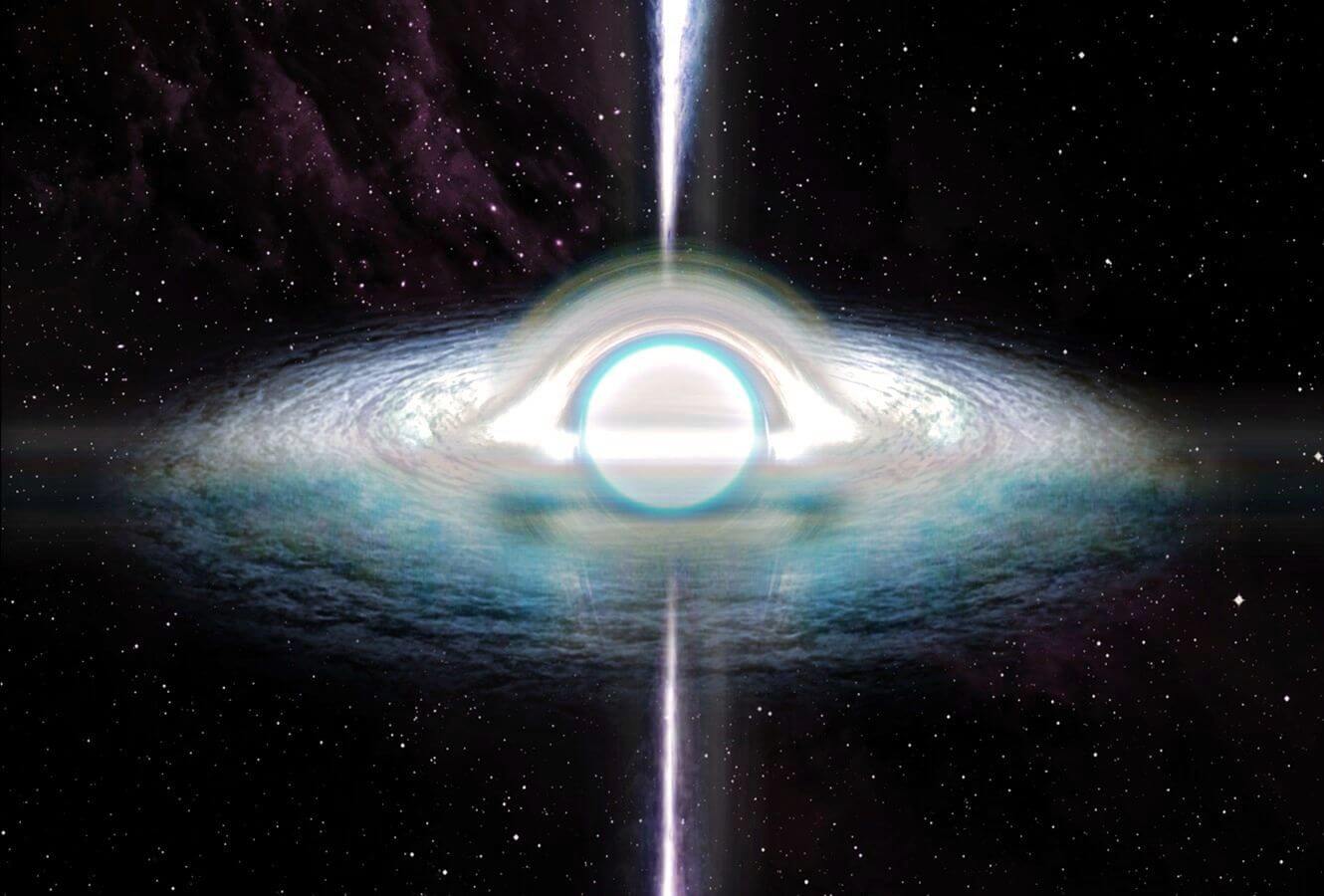It is not possible to compare white holes and black holes in terms of “winning” or “losing” because they are fundamentally different objects. White holes are hypothetical objects that are the time-reversed counterparts of black holes. While black holes are regions of space where matter has collapsed in on itself, creating a point of infinite density, white holes are thought to be regions of space where matter is explosively ejected outwards, at a rate that is faster than the speed of light.
Experts say, the white holes eject matter, whereas, the black holes pull matter. Therefore, we conclude this as the energy ejected by the white holes is absorbed by black holes, making them stronger and more enormous.
Because the white hole is still a theoretical concept and a part of astronomers’ imagination, they are still in search of white holes.
White Hole Vs Black Hole
Which is more powerful a black hole or a white hole?
It is not possible to compare the power of a black hole and a white hole because they are fundamentally different objects. As I mentioned earlier, black holes are regions of space where matter has collapsed in on itself, creating a point of infinite density, while white holes are thought to be regions of space where matter is explosively ejected outwards, at a rate that is faster than the speed of light. Because of their vastly different properties, it is not meaningful to compare the power of a black hole and a white hole.
Giving a final statement about a hypothesis concept will be unjustifying to reality because white holes are yet to be found. But according to the concept, energy and matter ejected by the white holes and absorbed by black holes, simply proves that both of them are devastating at the same level.
What creates a white hole?
While the formation of black holes is well-understood, the formation of white holes is not. In general relativity, it is possible for a collapsing star to form a black hole, which is a region of space where matter has collapsed in on itself, creating a point of infinite density. However, if the collapse were to continue past the point of infinite density, it is possible that the star would then begin to expand again, creating a white hole.

How is a white hole different from a black hole?
Black holes and white holes are two fundamentally different objects.
- Black holes are regions of space where matter has collapsed in on itself, creating a point of infinite density, while white holes are thought to be regions of space where matter is explosively ejected outwards, at a rate that is faster than the speed of light.
- Black holes are formed when a star collapses in on itself, and they can be divided into three categories based on their size:
- small black holes, which are about the size of a single atom but have the mass of a large mountain;
- medium-sized black holes, which have the mass of a star but are only about the size of our solar system;
- and large black holes, which have the mass of millions or even billions of stars and are located at the center of most galaxies.
- White holes, on the other hand, are hypothetical objects that are the time-reversed counterparts of black holes. In other words, while black holes are regions of space where matter has collapsed in on itself, white holes are thought to be regions of space where matter is explosively ejected outwards, at a rate that is faster than the speed of light. It is not known if white holes actually exist, but they are predicted by some theories of general relativity.
Can a white hole stop a black hole?
It is not possible for a white hole to stop a black hole because they are two fundamentally different objects, it is not meaningful to compare the ability of a white hole to stop a black hole.
Additionally, it is worth noting that white holes are purely theoretical objects that have not been observed in the real world. While the existence of black holes has been confirmed by multiple lines of evidence, including observations of their gravitational effects on nearby objects, there is no evidence for the existence of white holes. Therefore, it is not currently known if white holes actually exist.
Was GRB 060614 a white hole?
A gamma-ray burst detected by NASA’s Neil Gehrels Swift was detected back on June 14, 2006. This remarkable burst was GRB 060614. Scientists classified this burst as a “hybrid gamma-ray burst”. Many scientists thought that this might be a white hole. However, it turned out to be just a huge burst out and not a white hole, this was just a hypothesis and astronomers are tirelessly working to find a white hole.

